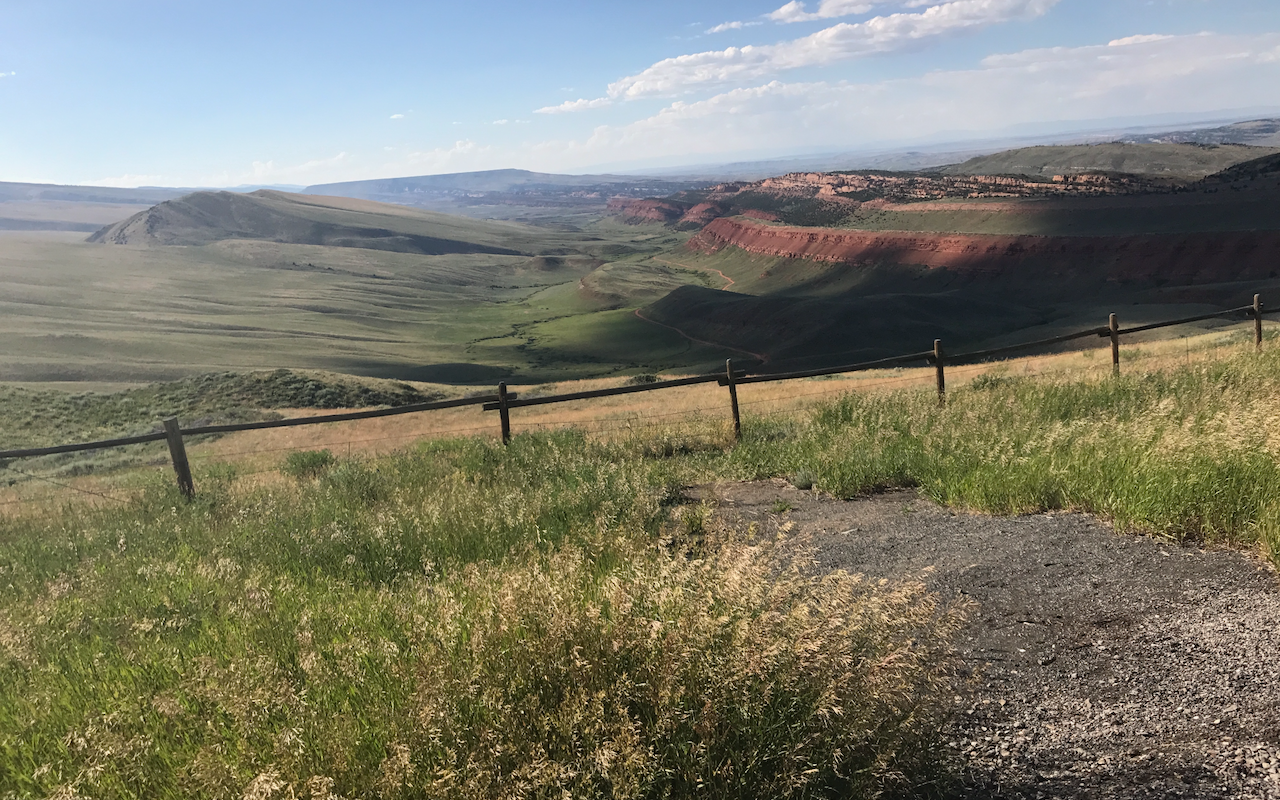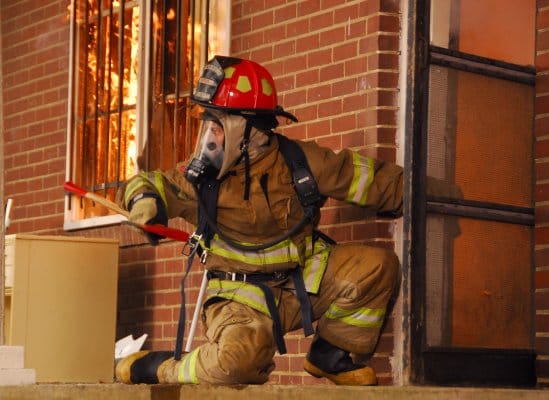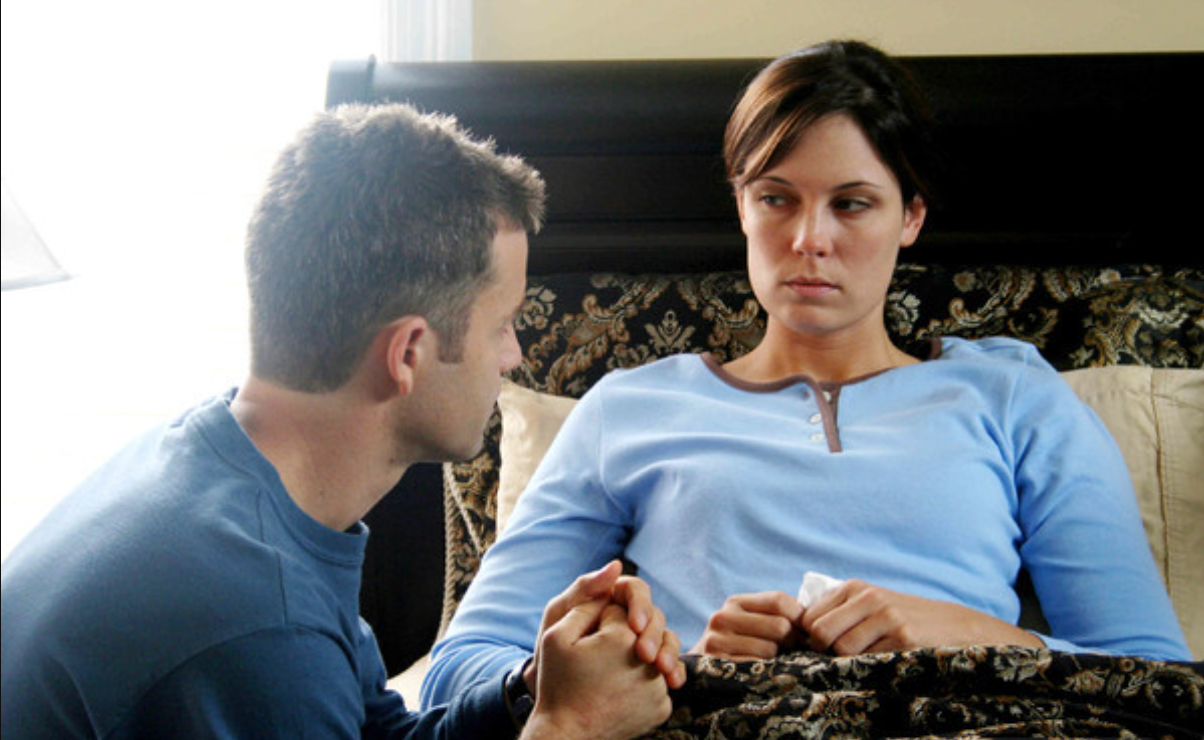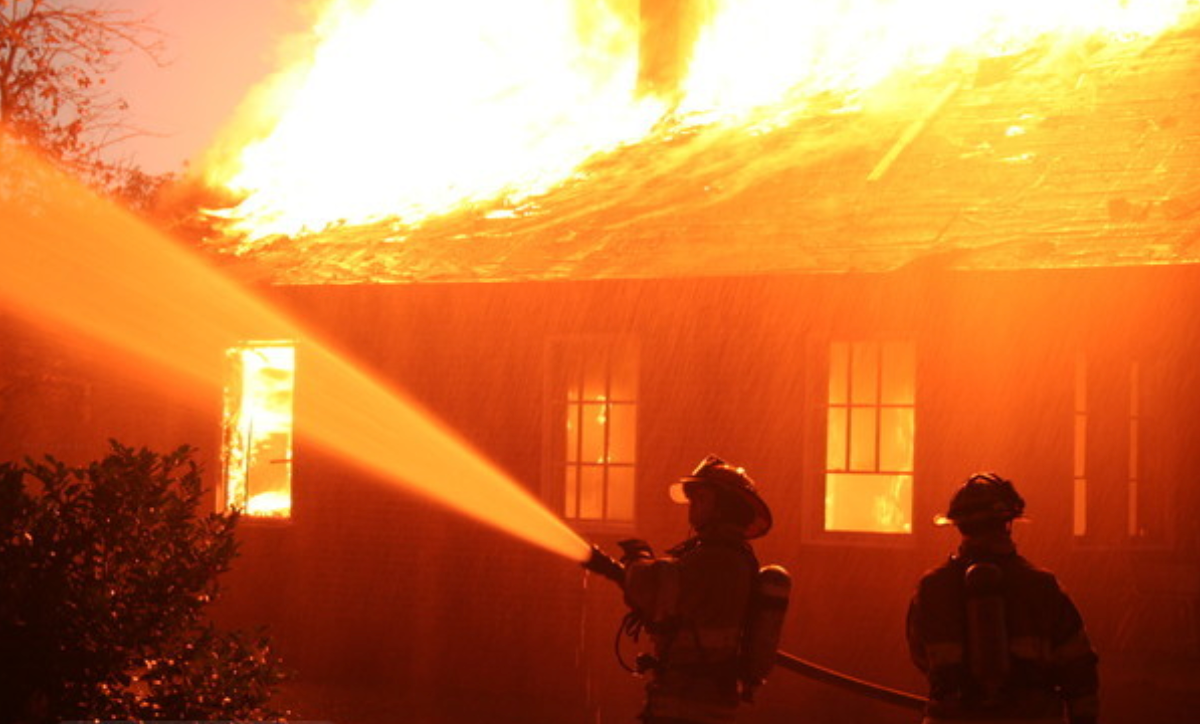Nellie Croy Smith is a writer and teacher, editor and entrepreneur.
Nellie is an essayist and teacher, editor and entrepreneur.
I write essays and letters about religion and propaganda, the stories we tell to hide from reality, and how we begin to tell the truth.
Featured Work

On writing the same word over and over again
Notes from a prison workshop on numbness, wakefulness, and the refusal to retreat from reality.

How to host a story dinner
Creating connections with other humans feels more vital than ever. Here's a DIY guide to a process I found surprisingly successful.
I refuse to submit to the spirit of fear
As a child, I was taught to fight dark forces. Only now am I starting to understand what that really means.
I have been thinking about demons again.
During my evangelical Christian childhood, the little dudes were everywhere, somehow managing to be both agents of supreme evil and mangy little jumpers. Get too close to a demon-host without a protective prayer and—schroop!—it’d be in you, just like that! Like a virus or a hopping, predatory leech. A friend told me that once he walked into a house and saw demons in a child’s stuffed octopus. They were watching him, waiting to pounce. Terrifying! Those little critters were always looking.
Having reached adulthood, I thought I’d successfully banished such entities from my consciousness. Now, I am less certain. Perhaps it is the off-smell in the air, the tumbling news cycle, the weird, greedy men posturing and ripping the flesh off the poor. The world feels charged, crackling at its uttermost edges. Meanwhile we stare at each other through digital lenses, unspoken questions lodged in the throat: Where do we go? Who is evil? Who is well? Where is safety? I don’t know if there is Something among us, but it’s hard not to feel that, if there were, this is very much what it would feel like. Some nights, I wonder if we are all possessed by something with a million eyes and heavy breath.
I don’t know if there is Something among us, but it’s hard not to feel that, if there were, this is very much what it would feel like.
But I have felt something like this feeling before. In my twenties, I took two ill-advised trips around the country. On the first I was 26, with a brand new Honda I’d decided to drive away from Florida, just to see what happened. What happened was that I hit the I-10 intersection, turned toward California, and didn’t return home for a month.
On that trip, I learned to love the west and to trust my gut. I spent very little money, mostly on gasoline and Trader Joe’s runs. I ate room temperature brie and baby carrots straight from the bag. I slept in my car, then on stranger’s couches, then in a dusty tent I bought on Craigslist for $8 and began pitching anywhere that looked uninhabited, sleeping wherever I liked and feeling utterly safe, upheld by mountains or the great swaths of rock beneath me. A neuroscientist might say that my prefrontal cortex hadn’t fully developed, and so my security was an illusion, a fluke of an immature brain. And, yes, it may be true that I did not believe that anything could happen to me. It’s also true that nothing happened to me, and I was utterly happy, eager to return.
And so, two summers later, I started another roadtrip, which I began by visiting my brother in Wyoming, where he was working on a dude ranch. He was 18, a brand-new grown up, and our philosophical paths were already diverging, but we shared a sense of humor and a love of the west and were happy together, careening around red cliffs on a four wheeler and spinning up plumes of dust in the path of the sun.
On one of our final nights, I told him of my plan to repeat my adventure and return to the wilderness, that I had brought my tent and would once again go it alone. I was eager to tell him my plans, thinking he would understand. But he did not share my enthusiasm. Instead, he was visibly concerned. He began telling me everything that could happen to me. Animals. Accidents. People. Strangers who could rape me, hurt me, steal from me. I did not have means to defend myself. I should really have a gun! He wanted to get me one, and would teach me how to shoot it. It might be necessary soon, anyway, given where the country was going. He even offered to sponsor my admission to a program where I would learn how to win a gunfight—some kind of survival camp taught by ex-Marines.
Yeah, no, I thought, I’m not going to shootout camp—over my literal dead body. The thought alone was absurd. Those who know me well know that, while I’m enthusiastic about urban berry foraging and have been known to raise the occasional pea plant, I’m not well-suited for a dystopian apocalypse. I don’t want to learn knife-throwing or how to heal a wound with saliva and maple leaves. I have zero desire to bury pinto beans in the backyard. If the situation ever comes to gunfighting in the streets, I’m dead! I accept that.
I told him as much, or at least demurred in some way, thanked him for his concern, told him I would definitely not be needing a weapon. Then I changed the subject, tried to shake it off, got ready for bed. I thought I was okay. Then I fell asleep.
All night I dreamed of annihilation. Fires howled in my ears. Strangers surrounded my car, screaming, beating the windows with obscene pink fists—someone horrible walked toward the tent—tall and with hovering, long shadows— My dream-brain fragmented into a thousand questions: Who would protect me? Where could I go? The shards attacked and attacked until everything turned into a recoiling, until I became the recoil, retreating until I could not retreat any more. I knew I should defend myself, that I had to kill!—but I could only lash out, could only flail with my wavery, watery dream-fingers, while I choked in the smell of my own terror—
A sudden blur of light. A cough in another room. Something looped me under my rib, yanked, and—the fever broke. I was heaved up and out of the hot, fetid sea in which I was drowning and into my own bed, where I was reassembled as a real and breathing body.
That body sat up, blinked, and there I was: myself, and safe again. Then I thought: Well! I think I just met the spirit of fear.

As a child, I’d learned that Bible verse— “God has not given us a spirit of fear, but of power and love and of a sound mind.” I’d taken it absolutely literally. The spirit of fear was a demon sent from the devil, that could capture you and…do what exactly? I wasn’t sure, but it was best to steer clear.
So I tried not to be afraid, or, at least, not to appear afraid. I was mostly uninterested in childish activities undertaken with other children, so I picked the scariest, most solitary activities and applied a sheen of bravado to them. Climbing things, going up ladders, picking up snakes. I have a distinct memory of overhearing a childhood friend, who, while watching me climb the backyard apple tree, said to her father, “Nellie will go to the very top! She’s not scared of anything!” Which statement puffed me up, because I knew she was wrong but extremely pleased she’d not seen the truth. Of course I had no fear of the apple tree, which had always been my friend and would not allow me to fall. But I was afraid of many things. I am afraid of many more now.
Still, after that unsettling Wyoming night, I began to suspect that my friend had been more right than either of us knew. Sure, I have my anxieties and worries; like my brother, I am also unsettled by the world, scared by what we have created and what may be coming for us. But through some admixture of nature or nurture—certainly not through my own merit—I have never been someone who dwelt in the hallways of fear, who felt others were out to get me, or that it was imperative I protect myself at any cost.
That night I’d wrestled something new, a different and darker angel: The feeling of desperation and contraction, of something coming after you—a murderer at your heels, a death knife at your throat. Of retreat, abandonment, isolation. Of I’m in this by myself. Of I’m going to keep what’s mine even if I have to shoot you to do it. It felt real. It was real. It was the spirit of fear, and it was serious business. Driving away from Wyoming, I thought: There are folks who live with this thing. People live that way all the time. And I thought: If that thing was with me all the time, ratcheting a knife in my gullet, yanking me about by my molars…well, I would do anything to be rid of it. I would vote for anyone, betray anything, tear the skin off of any living being.
That night I’d wrestled something new, a different and darker angel: The feeling of desperation and contraction, of something coming after you—a murderer at your heels, a death knife at your throat...
I smell it now, the stench that pervaded that dream. It’s not a demon, exactly—at least, it’s not the kind of grimy, little, voyeuristic being I used to think of as a demonic. Instead, it’s a mindworm, a meme, a virus we catch from each other. It can masquerade as a thousand things, and in a thousand things—common sense, patriotism, resistance—but it degrades the core of our humanity, the vital substrate of who we are and what binds us to each other. It’s being spread, on purpose, by our most powerful digital networks and our most powerful men, and it’s gnawing through the brains of the people I love, gnawing at the foundations of the country I love. I feel the spirit of fear every time someone—a friend, a bot, or a greedy and craven man—tries to tell me that my enemy is my neighbor, or the people across the border, or a stranger on social media. I feel it every time someone tells me I need to hunker down, pick a side, protect what’s mine. I see it. It’s with all of us. It pounds its dream-fists on the tent.
And wherever it walks, it walks with paranoia, retreat and retraction. Social disintegration, broken relationships, rumors of violence and war. Sarah Wilson, who writes about the future we’re all headed into, addressed this recently on a podcast. Sure, she said, if you really want to, you can respond to the events of the world by saving yourself—moving to the middle of nowhere, stockpiling supplies, bunkering against the apocalypse.
But do you realize—she ended, gently—That if you go this route, you will need to defend yourself? Probably with guns?
I burst out laughing! I did realize that! I have been told that so many times, in so many ways, and by so many well-meaning people. That the devil or the libs or the Republicans or the hikers and wildlife of Idaho were after me, or that America wasn’t going to be safe and that the government was out to get me and I should really take pertinent steps, should really find a weapon, trench in, get ready to punch someone who disagrees. Didn’t I want to defend myself? Didn’t I want to prepare?
No. I’m not going to live that way. Do you hear me? I refuse to live that way.
I refuse to live in a defensive posture. If the human community gets out of the precarious position we’ve put ourselves in, it will not be by succumbing to the same mind-patterns that got us here; by defending our little bean patches with our little bean sticks, stealing and hoarding territory, and worshipping those who horde the most resources, but by recognizing and accepting reality—and by building networks on the recognition that we are all in this together and that we all share the same fate. I won’t bow to politicians or influencers or anyone who tries to spread this demon to me or to other people, that screech at me about everything I have to fear, no matter what color they wear. I won’t do it. I get to choose. And with power, love, and a sound mind, I will.
Want to see the next thing I write?
Sign up below to get all my essays delivered straight to your email inbox.
No spam. Unsubscribe anytime.
The art of letting things burn
Notes on fireproofing, certainty, and that one mediocre Evangelical film I still think about.
The movie Fireproof dropped in 2008. That’s the 2008, the year we turned on the Large Hadron Collider and hurled particles at each other in search of connecting glue of the universe, the year the California Supreme Court decided to let same-sex couples marry; the year Barack Obama campaigned with a Shepard Fairey poster, and everything felt iconic and weird, and the kids lit HOPE up in big letters—it was the year, remember, when he actually won. It was also the year that Britney melted down and Heath Ledger died in his apartment and Abraham K. Biggs died on live webstream, the year that Lehman Brothers and Washington Mutual collapsed and the markets reeled, blistered, and then went under. It was the year that all the houses built on cheap credit were scraped out of people and sat like rotted-out teeth on the crests of the suburbs. It was that year. I graduated from college that year with a cohort of people who were scared to death, and with reason.
In the midst of the melée: Alex and Stephen Kendrick, brothers from Georgia, showed up in Hollywood with Fireproof, a very Christian movie they’d made on a shoestring budget—just half a million, according to LA Weekly. Early showings of the film were bought out by pastors who were so enamored by the message of the film that they passed out tickets at all three Sunday services. “Faith based films” were on the rise, spurred on by the recent-ish success of The Passion of the Christ. They were a reaction to Hollywood’s gutter-morals, the erosion of family values, the refusal to acknowledge a higher power, the illicit sex. The world was getting scarier and there were no films that were safe for good Christian families. So Fireproof won big. It made a bucketload of money—pushing $34 million—and climbed as high as #4 at the box office, shocking everyone outside the evangelical world, and spurring us evangelicals to cackle with glee. They’d underestimated us.

I include myself in the “we,” because of course I was there. This was back when I still joined my mother for chummy evening readings of Created To Be His Helpmeet, which was the book on marriage for conservative families, and one of the seminal works by Debi Pearl, who was soon to become infamous for her association with a few high-profile cases of extreme child abuse. Debi wasn’t directly involved, but newspapers often mentioned the Pearl books were—let’s say, influences. But at the time, Debi Pearl’s teachings on marriage didn’t seem too awful. They were even a little bit amusing. Debi, for example, insisted that men could be sorted into three categories: “Mr. Command Man” (who took charge of situations and was not to be crossed), “Mr. Visionary” (who had lots of ideas and never followed through on any of them), and “Mr. Steady” (who had no good ideas, zero romance, and was likely to be a factory worker). A woman adapted her relational tactics depending on the type she found herself married to, but in general, for best marital results, all three types were to be respected, obeyed, and regularly fucked, in that order. This was the natural way of things: men needed respect, women needed emotional support. And when Fireproof showed up—promising a glorious depiction of just such a Christian marriage in full color and surround sound—my dad bought tickets so the whole family could see it five rows back from the screen.
And so we come to the movie, which is bad. Almost unbelievably so. It centers on the marriage of Caleb and Catherine, a dim and blisteringly-white couple who just can’t seem to connect. Caleb, a thirty-something firefighter (played by evangelical golden boy, Kirk Cameron) is competent at his job but otherwise awful at being an adult. He’s angry and frustrated for no reason, and the first fifteen minutes of the film mostly consist of him blowing up at his wife for not having dinner ready. Meanwhile, Catherine (Erin Bethea) is coping with her depressing marriage by carrying on a flirtation with a co-worker. The marriage is on the rocks—until Caleb’s dad challenges Caleb to take “The Love Dare,” a 40-day project that just might “fireproof” their marriage. The Love Dare challenges Caleb to take care of the dishes, say nice things, and buy thoughtful presents. It’s all baseline good partner stuff, but it’s brand new territory for Caleb, who’s both furious at being required to behave decently and flabbergasted that his wife doesn’t fall at his feet at the first sign of human kindness.
“How is it that I get respect everywhere I go except in my own house?” Caleb whines to a friend.
“A woman is like a rose,” his friend replies, “If you treat her right, she’ll bloom. If you don’t, she’ll wilt.” Cut to next scene.

If all this sounds mind-numbingly boring, that’s because it is. If the characters sound like caricatures, that’s because they are. There’s no depth or spark anywhere. It’s just unlikeable people doing uninteresting stuff to prove a point, a morality play filmed on 21st century equipment. By far the most interesting part of the whole film is when Caleb realizes he’s addicted to porn, and, in response, takes the family computer outside and smashes the bejesus out of it with a baseball bat. At least something happens.
But here’s the thing: I knew all of this when I watched Fireproof in 2008. As young as I was, as indoctrinated as I had been, I’d read Mailer and Dickens and Chekhov, watched Vertigo and There Will Be Blood and Eternal Sunshine of the Spotless Mind. I’d already decided that evolution was a thing and that I actually loved science and that, whatever my family thought, reality mattered. I knew that Fireproof was shallow and chintzy, a Mona Lisa screenprinted in primary colors on a keychain.
Watching it now, though, I’m struck by what I didn’t see then, which is that the whole film is just afraid. It’s about what humans do when they see change coming and are unwilling to look. In the world of Fireproof, everything that is messy, or out of control, or comes with too many questions, is to be sterilized, set straight, and preserved by turning to Jesus. When Caleb gets saved, halfway through the film, he miraculously executes a 180-degree, Stepford-Wives pivot into being a Nice Human Being, with no questions, no doubts, and no existential problems. It’s not so much that his problems resolve as that they cease to exist. He walks around with this eerie beatific smile—and then settles into a colorless, question-less relationship with his wife (who, of course, can’t resist the charm of new, angelic Caleb).
And then there’s the movie’s real point, which is salvation—preserving your immortal soul so that nothing bad can ever really touch you. The film returns, again and again, to a park with a literal wooden cross that the characters always seem to visit in a light that most resembles heavenly glow. They and the viewer circle back and back, once to be rebuked, once to hear the message of salvation, once to accept it, once to make vows, and each time it gets weirder because it’s the same scene, the same golden paradise sunset lighting, the same cross in the middle of nowhere, the same demand to convert, convert, convert. Nothing changes because the cross is the avatar of an unchanging, interminable eternity, the reward you get for boiling all the life out of your life on earth. Here, “fireproof” is not so much adjective as imperative verb. Destruction is coming. Make sure you aren't flammable. The promise of Fireproof is that you can somehow save yourself and the ones you love from change, destruction, and death.
In Fireproof, the cross is the avatar of an unchanging, interminable eternity, the reward you get for boiling all the life out of your life on earth.
That’s a pretty sexy promise if you’re scared of the future. My people lapped it up in 2008. They were scared of losing the way things were, scared of losing their houses, their jobs, their way of life, scared that their kids would leave the faith and go to hell, and also scared they’d have to live next to people who were different than they were. The reminder of an eternal land of unsullied happiness was and is nice. It’s the reason why the Kendricks boys are still making mediocre movies and that faith-based films still hit top #3 box office spots. Safety sells. But it’s cheap. It feels so cheap now.
When a friend gave me the prompt to write about "fireproofing valuable objects," I thought, Good lord. I haven’t fireproofed anything in years. After I lost my god, I threw away anything that could hurt me with its impermanence. Pictures, journals, mementos, relationships. I cleaned out the closets and scrubbed my brain until I was confident that there was nothing I couldn’t live without. It worked, too. I was as clean as a whistle inside; you could hear the wind blow right through me. And then one day I went on a first date with this Russian guy, and he had a seizure—right there at the table—and that night, after we parted, I sat in the car for a long time. I knew, I knew, that I should probably walk away. But I didn’t.
Instead, I watched him almost die once or twice a week, and saved him whenever I could, and so came to see our future laid out plain, in which there could be no truly happy ending, only a succession of happy days that would last as long as they lasted until the medications that kept him alive stopped working, or he miscalculated a dose, or another organ gave out. Then there would be a lot of very lonely days. Then—nothing. And there was no deity or chemical solution in the world that could stop it from happening.

That’s why, when Caleb saves his eternal soul and suddenly learns to love his wife, I don’t believe it. I don’t believe we learn to love by coating ourselves in protective chemical, or that we can love something else by sanitizing it, scouring off the sin and dirt and living tissue to make it eternal. This morning the Amazon jungle is a cauldron of smoke, and the kids outside are out by the pool tossing a plastic ball. My sister is about to deliver a second child—the first one almost killed her, but she ached for another—and the people that raised me don’t talk to me anymore. The one I love is at the doctor, getting liquid in perfume-sized vials that will keep him alive for now. Later, we’ll go to lunch. And it seems to me that the meaningful thing about all of this is that, sooner or later, everything burns.
I don’t believe we learn to love by coating ourselves in protective chemical, or that we can love something else by sanitizing it, scouring off the sin and dirt and living tissue to make it eternal.
At the end of Fireproof, every I is dotted and every T crossed, and Cat has learned to respect her husband, and Caleb has learned to do the dishes. The camera sweeps around their lily-white car as they load in for church, Bibles in hand. They will talk about Jesus. They will ask no difficult questions. They will do this on repeat for the rest of their earthly days. In the final montage, colored with every ounce of sepia that the Kendrick brothers thought they could get away with, we see the happy couple welcoming their parents to their Christian home, pictures of compliance, and, then renewing their vows in the flaxen light which surrounds the cross. The camera pans down from above. We look down at everything from a distance. We are meant to be sure that the faithful band in happy communion is saved, everyone will be together forever, where they’ll never be apart, and nothing will ever change.
And it’s creepy. I don’t recommend it.
(Editor's note: This piece was written in 2019 in response to a prompt given in workshop by Clancy Tripp. It's been slightly edited for publication here.)
Where do we go from here?
Carl Jung addresses the moment, in a way.
“The spirit of the depths has subjugated all pride and arrogance to the power of judgment. He took away my belief in science, he robbed me of the joy of explaining and ordering things, and he let devotion to the ideals of this time die out in me. He forced me down to the last and simplest things.”
Carl Jung

